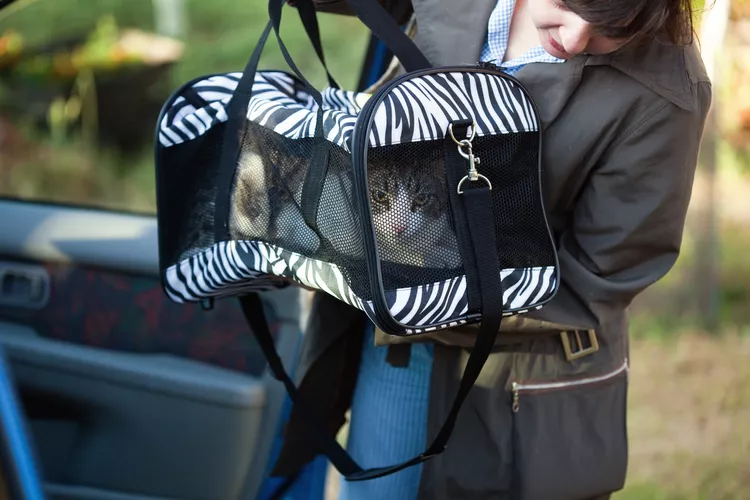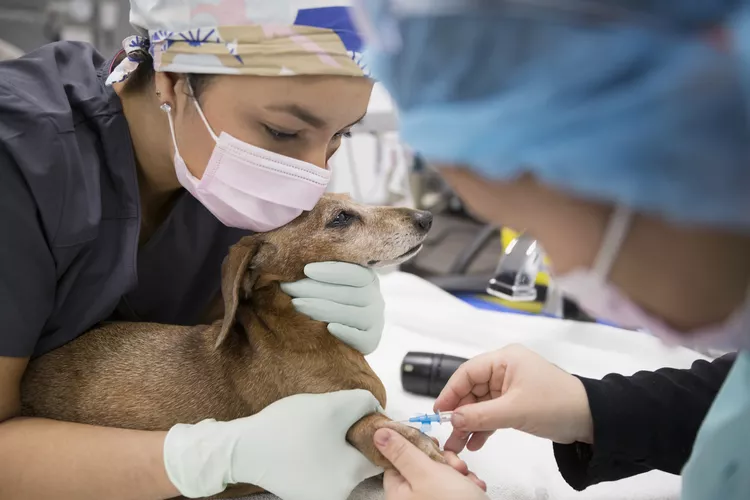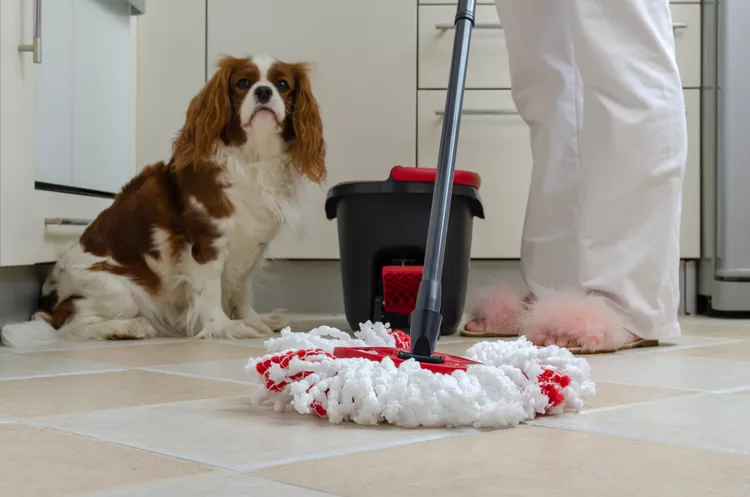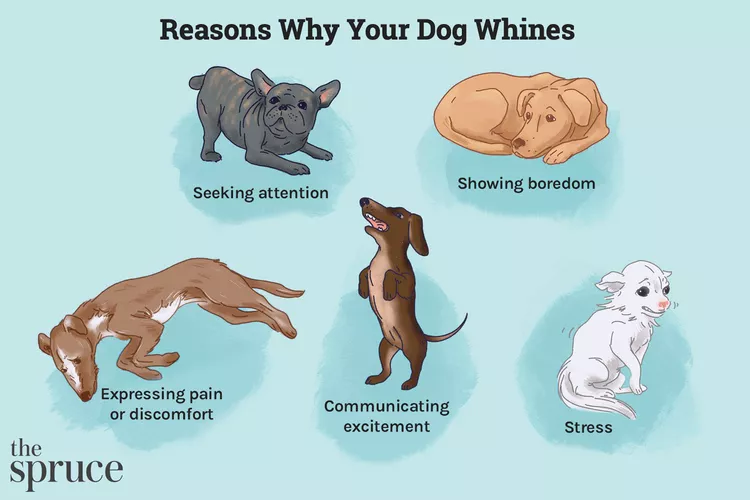
Historically, people often think every year of a cat's life is equivalent to seven years of a human's life, but cats actually age much faster than that. And with age, we know that diseases often follow.
On top of that, cats also act differently at certain life stages. Because of these things, it's not only helpful but also important to be able to understand what your cat is going through at each stage of its life.
Use the below chart as a guide to understand how your cat's age translates to human years.
The first six months of a kitten's life are filled with eye-opening experiences—literally. A kitten's eyes and ears open shortly after birth at around 1 to 2 weeks of age, and from there, its physical and mental development takes off. A kitten is exposed to sights, sounds, and smells just like that of a human infant. Each new animal, person, and object it comes in contact with helps to form its personality. Over the next few weeks, the socialization skills of a kitten are greatly affected depending on all of these interactions and exposures.
After a kitten leaves its mother at about 2 to 3 months of age, it will start to become more independent and curious. It will explore its surroundings, get into a little trouble, and potentially chew on things it shouldn't while its adult teeth are starting to erupt. Growth happens fast during these months and by the time a kitten is 6 months old, they are comparable to a 10-year-old child in age.
A series of vaccinations will need to be performed and kittens are typically spayed or neutered around 6 months of age. Most hereditary or congenital issues are usually discovered by your veterinarian during this time if there are any at all.
Since a 6-month-old kitten is already comparable to a double-digit human child, older kittens and younger adult cats will continue to test their boundaries as they grow into adults. By the time your cat is 1 year old, it will have reached its adult size, and its preferences, habits, etc. are typically established.
A 1-year-old cat is physiologically similar to a 15-year-old human, and a 2-year-old cat is like a 24-year-old person. Adult cats don't need as many vaccinations as a kitten needs and are usually healthy, but this age period is a good time to get some baseline blood work performed to know what your cat's normal values look like. You'll thank yourself when your cat is older and you have something to compare its blood work to. Occasional grooming, dental cleanings, and annual check-ups with a veterinarian are typically all that is necessary to keep a young adult cat healthy.
A 3 to 6-year-old cat is still an adult but not a senior cat yet. These years are usually trouble-free in regard to health concerns, but some cats do have chronic health issues or congenital concerns that need to be addressed.
A prime cat may benefit from early joint support supplements to keep its hips and knees working as they should, will need annual vet check-ups with regular vaccinations, and may experience an occasional health concern, but overall this age period is usually a healthy one.
A 5-year-old cat is comparable to a human in their mid-30s, so these are its prime years as an adult.
Once your cat reaches about 7 or 8 years of age, some veterinarians may start referring to it as a senior, but we know that since cats typically live into their late teens, they're not yet senior citizens. While cats who are 9 or 10 years of age might have been eligible for an AARP card if they were humans, they haven't quite reached retirement age yet.
This is an important age period to ensure your aging cat is getting proper nutrition because obesity is common in middle age. Also check that your cat hasn't developed dental disease, kidney issues, or a heart murmur, and is still able to jump on and off things easily. Blood work should be compared to that which was done during the younger years to ensure there are no trending changes in organ function and more frequent check-ups with your veterinarian are recommended.
Your cat is finally a true senior when it reaches 11 years of age. Joint issues are a commonly hidden concern that owners of aging cats should be addressing and organ functionality may start to decrease. Blood work should be monitored at the recommendation of your veterinarian to ensure common problems seen in senior cats are caught early. Dietary changes may also be recommended at this age since older cats typically need different nutrition as their bodies change.
Some older cats seem to get crabby as they age, but this is often simply because a senior cat may be experiencing pain, joint discomfort, or even brain changes and confusion. Be sure to discuss any observed changes with your veterinarian, as they may be an indicator of something else going on with your cat.
Cats live a long time. A 15-year-old cat is comparable in age to a human in their mid-70s, and by the time they are 20, they'd almost be 100 years old if they were a person. Any cat that is 15 or older is considered geriatric and should be visiting the veterinarian at least once every six months. These cats may be on medications or special foods and supplements to support various bodily systems. Geriatric cats often have decreased hearing and vision abilities and sleep for the majority of the day.
Cognitive decline is not uncommon in cats of this age, just like a human in their 90s might experience. Signs of cognitive dysfunction in cats include crying at night and urinating or defecating near, but not in, the litter box, among others.
While it's more common for a cat to live into its 20s than it is for a dog, a cat this old is still an accomplishment and special attention should definitely be paid to these geriatric felines.

How to Take a Car Trip With Your Cat
Think you can't travel with your cat? Think again! Traveling with your cat just takes a little preparation and planning. Here's how.
How to Determine Your Cat's Age
Determining the age of an adopted cat is just guesswork, but a vet can look at teeth, sexual maturity, fur coat, and eyes to estimate.
Cat Food Ingredients to Avoid
When checking the nutrition content of cat food, look for ingredients that are not healthy or show it is of poor quality. Avoid these 3 ingredients.
What You Need to Know About Homemade Cat Food
If you want to cook for your cat, make sure to read about the risks associated with homemade diets for cats
Can Dogs Eat Raw Chicken Feet?
What are the potential health benefits of chicken feet for dogs? What are the risks?
Macadamia Nuts and other Nuts That Are Toxic to Dogs
Find out why macadamia and other nuts are poisonous to dogs, what signs to look for, and what is needed to treat the toxicity.
10 Tips for Taking Care of a Senior Dog
Is your dog a senior? Changes to their diet, exercise, and care are required. Here's how to make sure they're living their best and healthiest life.
Hookworms in Dogs
Hookworms can make a dog uncomfortable but may also lead to serious blood loss and anemia. Learn the causes, treatment, and prevention.
Is Swiffer WetJet Safe to Use Around My Pet?
ASPCA toxicologists deemed Swiffer WetJet to be safe for use around pets, but there are other all-natural floor cleaning options available.
Can Dogs Eat Bread?
Is bread a safe snack for you dog? Are there kinds of bread you should avoid? Learn more about whether it's okay to feed your dog bread.
14 Hypoallergenic Cat Breeds for People With Allergies
There are no true hypoallergenic cat breeds. But some, such as the Siamese and Siberian, might be less likely to cause allergies than others.
Burmilla: Cat Breed Profile, Characteristics & Care
The playful and social burmilla is one of the newest cat breeds to be officially recognized by the CFA. Learn about burmilla breed.
Nebelung: Cat Breed Profile, Characteristics & Care
The Nebelung is a rare breed of domestic cat that’s known for their long gray-blue fur and gorgeous green eyes. Learn about the Nebelung cat breed.
Cymric: Cat Breed Profile, Characteristics & Care
The Cymric, a long-haired Manx, is one of the world's oldest cat breeds. This tailless cat is friendly and playful. Learn about the Cymric breed.
Here's Why Cats Groom Themselves
Learn all about cats' grooming habits: how and why cats groom, including mutual grooming, over-grooming, and displacement grooming!
Pharaoh Hound: Dog Breed Characteristics & Care
Learn all about the Pharaoh hound, a sight hound dog breed known for their slim appearance and the ability to blush when excited.
How to Walk Your Dog
Dog walks should be fun for your dog while respecting your community. Learn why walking your dog is important and get essential safety and training tips.
How to Stop Your Dog From Whining
Whining is a natural way for your dog to communicate with you. Explore the reasons dogs whine and how to discourage your dog from whining too much.
How to Stop Your Dog From Barking Excessively
All dogs bark, but excessive barking is a behavior problem. Learn how to help stop excessive barking and prevent it from happening all the time.
How to Train Your Dog to Live With Another Dog
When you add a second dog to your household, it's natural that there will be an adjustment period. Learn how to get two dogs to become acquainted.